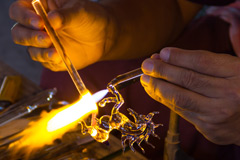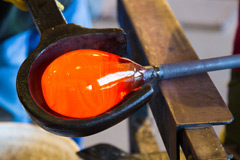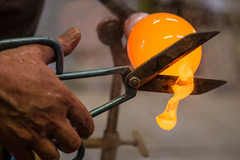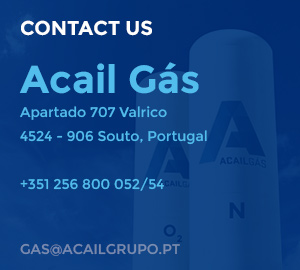
Glass
The industrial gas is an important component for the glass industry. Offers several applications which increases the capacity and production quality, protecting the environment.

COMBUSTION
Combustion is more effective, reducing Nitrogen capacity and increasing Oxygen quantity. Oxygen improves the total efficiency of fusion and may increase furnace capacity between 10 and 25% with a low investment. Also reduces environmental impact.

Blanketing
On the manufacture of plain glass, the tin bath must be protected from oxidation, avoiding that the tin has contact with atmospheric Oxygen, through a controlled atmosphere of Argon and Hydrogen. Without oxidation, there is no risk of contamination of the glass surface, improving its quality and reducing to minimum the consumption of molten tin.

BUBBLES
Depending on the type of glass, Oxygen or Nitrogen is injected to replace atmospheric air. The injected gas allows to maintain a stable convection on molten glass, leading to a more stable and reproducible heat transference, resulting on the elimination of bubbles in the glass.

WINDOWS INSULATION
The insulation with double or triple glazing with gas preserves the energy and avoids the noise. For the noise reduction, the gas density is important because the higher mass per area, the better the results. The pure or mixed gases commonly used are sulfur hexafluoride and krypton. Argon and Krypton are used to avoid the heat loss through the windows.
Be our client
Part of a vast network of partners and customers who benefit from our products and services
Know more
